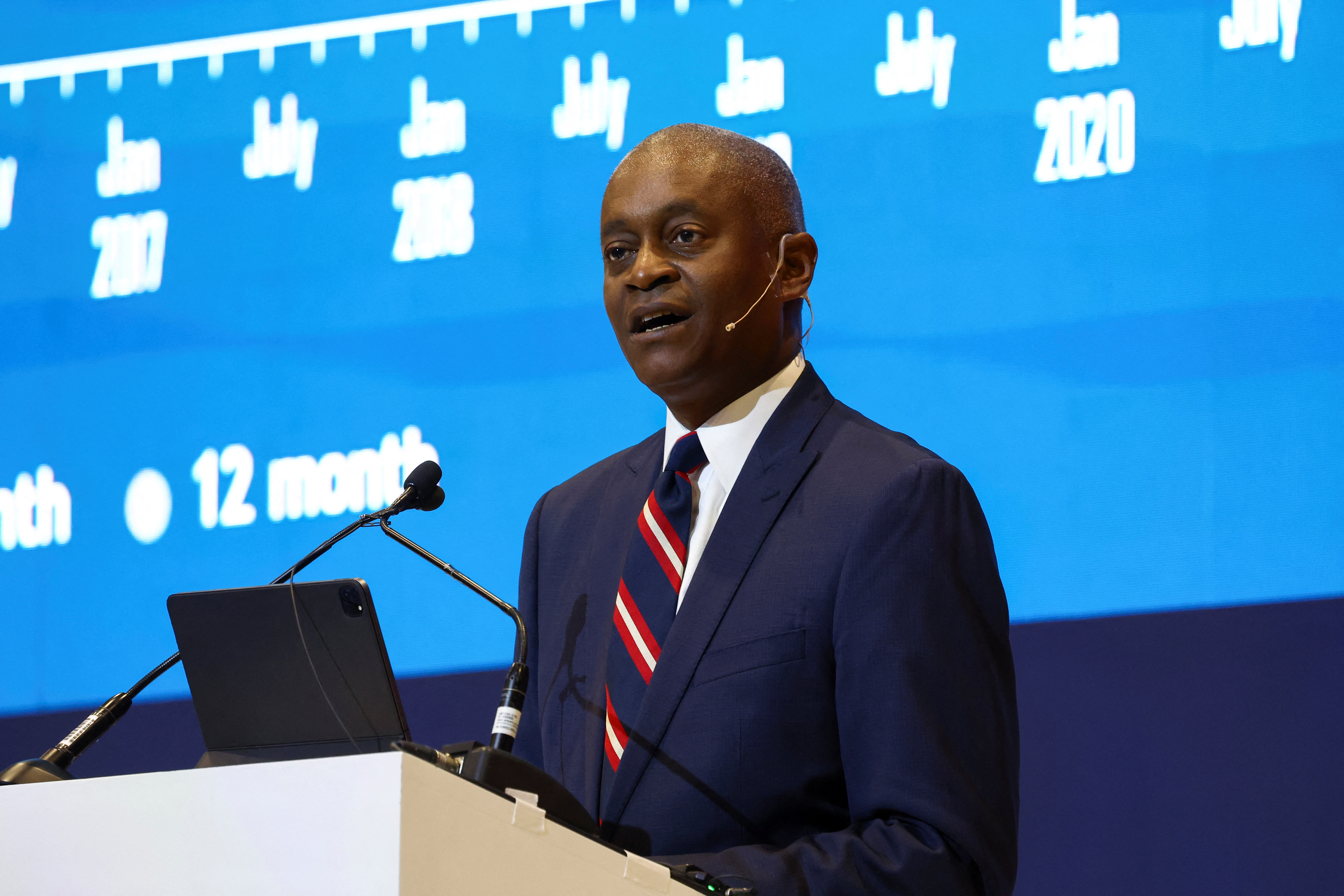
FILE PHOTO:President and chief executive officer of the Federal Reserve Bank of Atlanta, Raphael Bostic speaks at the South African Reserve Bank’s Biennial Conference in the Cape Town International Convention Centre, South Africa, August 31, 2023. REUTERS/Esa Alexander/File Photo Acquire Licensing Rights
ATLANTA, Oct 3 (Reuters) – With the U.S. economy slowing and inflation falling, there is no urgency for the Federal Reserve to raise its policy interest rate again, but it will likely be “a long time” before rate cuts are appropriate, Atlanta Federal Reserve president Raphael Bostic said on Tuesday.
“I am not in a hurry to raise, I am not in a hurry to reduce either,” Bostic said at a Metro Atlanta Chamber event that tried to marry caution over any further rate increases with a commitment to the “higher for longer” strategy that the Federal Open Market Committee as a whole has adopted for this phase of its inflation fight.
“I don’t think there is an urgency for us to do anything more … I want us to hold. I think that is the appropriate thing to do for a long time,” Bostic said.
Fed policymakers are nearly unanimous in thinking that there will need to be at most one more quarter point rate increase before the central bank completes a rate hiking cycle that began in March 2022 to battle an outbreak of inflation in which consumer prices rose at an annual rate as high as 9%.
Bostic is among the seven of 19 officials who in September indicated the Fed could leave the current rate stand in the current range of between 5.25% and 5.5% and still see inflation fall – without putting more pressure on the economy than needed.
The current policy rate “is starting to slow the economy down. How fast is it going to slow?” Bostic asked, in calling for a “patient” approach to any further policy changes, allowing the economy more time to adapt to what the Fed has done already.
“Slowing is happening. Let’s let it happen. Let’s let the world move and let’s be patient. (Inflation) doesn’t need to be 2% tomorrow,” Bostic said.
The Fed next meets on Oct. 31 to Nov. 1. Recent data showing a decline in the underlying pace of inflation is expected by many investors to hold the benchmark policy rate steady.
Twelve of 19 officials, however, projected as of September that one more rate increase would be needed, and this week laid out the case for why that may be necessary.
A jobs report on Friday will be the next key bit of information in that debate, with officials looking to see if hiring continues to slow, and other job market metrics fall further into line with the trends seen before the pandemic.
Reporting by Howard Schneider; Editing by Andrew Heavens and Will Dunham
: .

